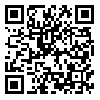Volume 3, Issue 3 (September 2021)
IEEPJ 2021, 3(3): 357-365 |
Back to browse issues page
Download citation:
BibTeX | RIS | EndNote | Medlars | ProCite | Reference Manager | RefWorks
Send citation to:



BibTeX | RIS | EndNote | Medlars | ProCite | Reference Manager | RefWorks
Send citation to:
Ahmadgholami M, Heidari M, Bakhtiar Nasrabadi H. (2021). Reflection of Buber's Moral Perspective on Teacher Professional Ethics: Teacher-Student Communication Area. IEEPJ. 3(3), 357-365. doi:10.52547/ieepj.3.3.357
URL: http://ieepj.hormozgan.ac.ir/article-1-337-en.html
URL: http://ieepj.hormozgan.ac.ir/article-1-337-en.html
1- Department of Education, Faculty of Education and Psychology, University of Isfahan, Isfahan, Iran
2- Department of Education, Faculty of Education and Psychology, University of Isfahan, Isfahan, Iran ,mh.heidari@edu.ui.ac.ir
3- Departmant of Education, Faculty of Education and Psychology, University of Isfahan, Isfahan, Iran
2- Department of Education, Faculty of Education and Psychology, University of Isfahan, Isfahan, Iran ,
3- Departmant of Education, Faculty of Education and Psychology, University of Isfahan, Isfahan, Iran
Abstract: (4618 Views)
Teachers in modern societies have a model and identity function, and a professional and ethical mission to achieve the perfection of students. The aim of this research was to deduce guidelines for the professional ethics of teachers in the area of teacher-student communication according to the moral principles from Buber's point of view, because Buber pays special attention to the issue of ethics in human relations. The research paradigm was qualitative. The data collection method was documentary and a descriptive-interpretive approach was used to analyze the data. In order to provide guidance for each of the eight principles of teacher professional ethics, the inferential method was used. The results indicated that in the light of the unifying ability of the final moral criterion, the basic orientation of other principles of ethics of the teaching profession is correctly determined. In teacher ethics, Buber assigns a real position and weight to each of the "two poles of teacher and student"; In a way, the reflection of Bobri's "I-you" relationship in educational processes significantly reduces the conflicts between educational principles, and in the relationship between teacher and student. In the area of teacher ethics, we can emphasize the positive concepts of Buber thought, which are the "moral virtues". In the current situation in which formal education systems and their derived curricula encourage impersonality and alienation in the relationship between teacher and student, teacher action based on Boobri moral virtues can facilitate the process of building students 'personal identities. It also fosters the teachers' personal and professional integrity.
Type of Study: Original |
Subject:
Educational Psychology
Received: 2021/02/11 | Accepted: 2021/07/1 | Published: 2021/09/1
Received: 2021/02/11 | Accepted: 2021/07/1 | Published: 2021/09/1
References
1. Ametrano, I. M. (2014). Teaching ethical decision making: Helping students reconcile personal and professional values. Journal of Counseling & Development, 92(2), 154-161. [DOI:10.1002/j.1556-6676.2014.00143.x]
2. Amini Mashhadi, S. (2018). Explaining the professional ethics of teaching: a reflection on the views of David Carr and Allameh Tabatabaei. (Ph.D Thesis), Ferdowsi University, Mashhad.
3. Azizi, N. (2010). Professional ethics in higher education: A reflection on strategies to improve ethical standards in academic education. Strategy for Culture, 3(8), 173-202.
4. Bagheri, K., Sajadieh, N., & Tavasoli, T. (2010). Research approaches and methods in philosophy of education. Tehran: Institute of cultural and social studies.
5. Buber, M. (2003). Between man and man: Routledge. [DOI:10.4324/9780203220092]
6. Buber, M. (2013). Eclips of God (A. Kashef. & A. Sohrab, Trans.). Tehran: Forouzane-rouz.
7. Buber, M. (2014). On Judaism (A. F. Vadeghani, Trans.). Qom: Adyan.
8. Buber, M. (2016). I and Thou (A. Sohrab. & E. Attarodi, Trans.). Tehran: Forouzane-rouz.
9. Carr, D. (2005). Professionalism and ethics in teaching: Routledge. [DOI:10.4324/9780203979396]
10. Faramarz Gharamaleki, A. (2010). An introduction to professional ethics. Tehran: Saramad.
11. Friedman, M. S. (2003). Martin Buber: The life of dialogue: Routledge. [DOI:10.4324/9780203398197]
12. Gutek, G. L. (1997). Philosophical and ideological perspectives on education: ERIC.
13. Haydon, G. (1996). Should teachers have their own professional ethics? Journal of Philosophy of Education, 30(2), 301-306. [DOI:10.1111/j.1467-9752.1996.tb00399.x]
14. Holmes, R. L. (2003). Fundamentals of philosophy of ethics. Translated by Massoud Alia. Tehran: Phoenix Publishing.[In Persian].
15. Jafari, H., Abolghasemi, M., Ghahramani, M., & Khorasani, A. (2017). Organizational and contextual factors of professional development of elementary teachers in special schools. Journal of School Administration, 5(1), 73-92.
16. Karimi, F. (2008). Studying professional qualifications of primary teachers. Quarterly Journal of Educational Leadership and Administration, 2(4), 151-166.
17. Macquarie, J. (1998). Existential philosophy. Translated by Mohammad Saeed HanaeiKashani. Tehran: Hermes.
18. Majedi, P., Naderi, E., & Seifnaraghi, M. (2019). Designing a model of teacher competencies in accordance with global characteristics and validating it from the viewpoint of educational experts and exemplary teachers of schools in Tehran. Journal of School Administration, 7(1), 84-104.
19. Mirzaei, K. (2016). Research, researcher and writing research (Vol. 1). Tehran: Fozhan.
20. Motallebi Fard, A., Nawe Ebrahim, A., & Mohsen Zadeh, F. (2001). Investigation and Identification of professional and ethical markers in instruction and teaching from the point of view of master students: A qualitative study. International Journal of Ethics and Society, 6(2), 1-8.
21. Murphy, D. (1988). Martin Buber's philosophy of education. Dublin: Irish Academic Press.
22. Seif, S. M. (2006). A reflection on Martin Buber's philosophy of dialogue. Journal of Nameh-Ye-Mofid, 2(2), 43-58.
23. Sharafi, M., & Imani, M. (2010). Review and critique of ethics in the thought of Martin Buber. Quarterly Journal of New Thoughts on Education, 6(2), 9-52.
24. Warnick, B. R., & Silverman, S. K. (2011). A framework for professional ethics courses in teacher education. Journal of Teacher Education, 62(3), 273-285. [DOI:10.1177/0022487110398002]
Send email to the article author
| Rights and permissions | |
 |
This work is licensed under a Creative Commons Attribution-NonCommercial 4.0 International License. |









